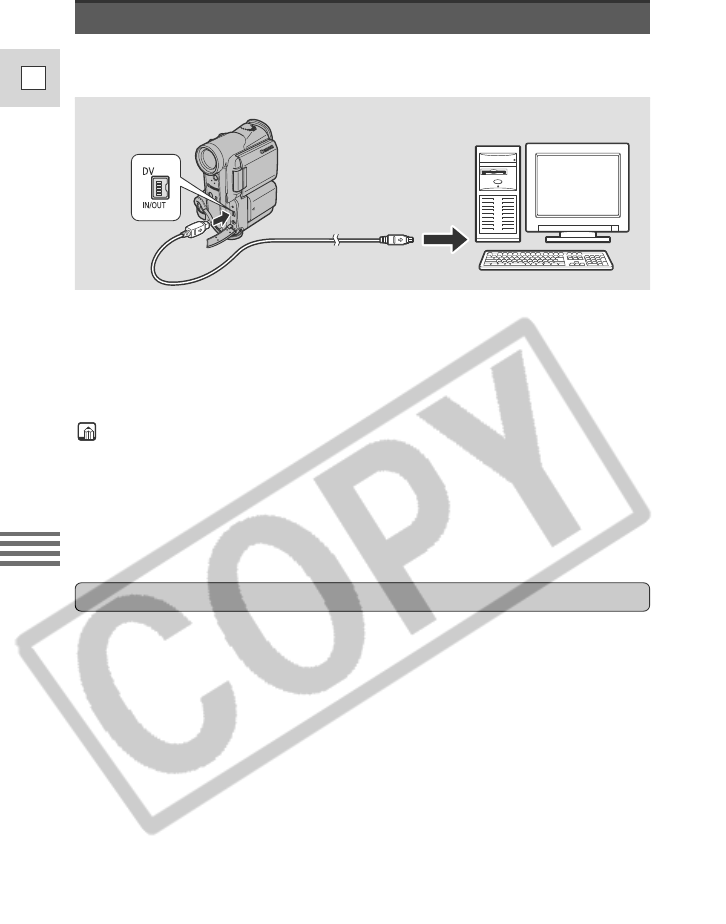
100
E
Editing
You can transfer recordings to a computer equipped with a DV (IEEE1394)
terminal or IEEE1394 capture board (optional software required).
Cautions:
• Do not disconnect the DV cable, or turn off the camcorder or computer while
data is being transferred to the computer.
• Operation may not work correctly depending on the software and the
specifications/settings of your computer.
Notes:
• We recommend powering the camcorder from a household power source while
it is connected to the computer.
• Refer also to the instruction manual of the computer.
• Optional software required. Refer also to the instruction manual of the software.
• For transferring recordings from a memory card to the computer using a USB
cable, see p. 140.
Connecting to a Computer Using a DV (IEEE1394) Cable
IEEE1394 (DV)
terminal
DV IN/OUT
terminal
Commercially available DV cable
Windows XP users can use the software on the supplied DV NETWORK
SOLUTION DISK to perform videoconference and file transfer over the Internet,
or upload files from the computer to the memory card and use the camcorder as
card reader/writer. The available functions depend upon the camcorder model and
the networking environment. For details, refer to the DV NETWORK SOLUTION
DISK Software Instruction Manual.
Cautions:
• Do not disconnect the DV cable, remove the memory card or turn off the
camcorder or computer while data is being transferred to the computer (while
the camcorder’s card access indicator is flashing). Doing so may damage the
memory card’s data.
• The image files on your memory card and the image files saved on the hard disk
drive of your computer are your valuable, original data files. If you wish to use
image files on your computer, be sure to make copies of them first, retaining the
original.
DV NETWORK SOLUTION DISK (Windows XP Users)


















